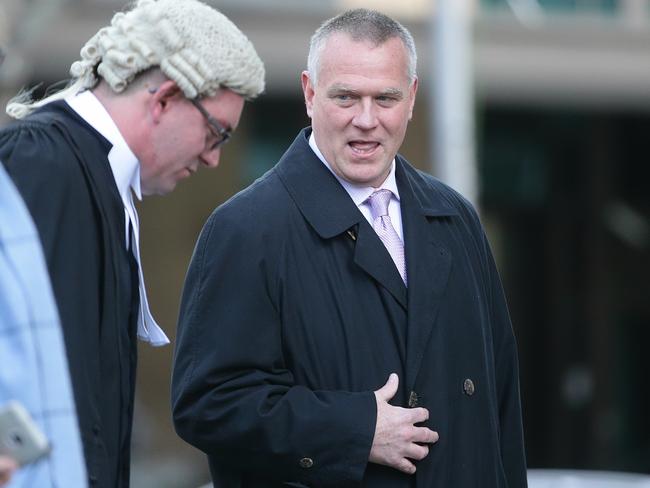Think twice before you tinker with your resume
THOSE little white lies that give your CV so much more punch are about to become dangerous. Think them through.
THOSE little white lies that help give CVs more punch are under scrutiny.
You know the ones — stretching out how long you worked at a company to cover an employment gap, or boosting your test scores. Everyone does it, right?
Well, you might want to think twice next time you’re on the job hunt.
Plans are afoot to set up a national online database of university records, which will make it quick and easy for employers to check whether you really got that HD — or even went to Sydney Uni at all.
The database, which will be linked with similar systems around the world, aims to clamp down on high levels of credential fraud that are the bane of every recruiter’s existence.
Researchers have determined that as many as one-third of candidates lie on their resumes, and recruitment agencies have been blamed for failing to subject them to rigorous checks.
But while some can be lax when it comes to checking credentials, experienced recruiters have ways of unearthing the truth — and if you’re caught out, the consequences will be dire.
A Sydney law graduate found this out the hard way after he bumped up his uni results to give himself a Distinction average, and beefed up his experience.
The graduate managed to score a highly sought-after paralegal job at law firm Gilbert + Tobin, before jumping over to top tier firm Corrs Chambers Westgarth — but it all came falling down like a house of cards.
JOINING THE DOTS
Another law firm, Allens Linklaters, contacted the Legal Service Commissioner when it discovered that the graduate had submitted two wildly different versions of his resume, the first for a summer clerkship and the second for a fulltime position with the firm.
After fessing up to the fraud, the 22-year-old was forced to resign.
He’ll have to look for work in another industry; last month, he was disqualified from holding a practising certificate for two years.
And it’s not just naive university graduates who are prone to telling outrageous fibs.
Impossible to forget is Myer’s public relations disaster of 2014, when the retailer sent out a press release announcing the appointment of its new star executive, Andrew Flanagan.
Touted as a possible successor to then chief executive Bernie Brooks, Flanagan was given his marching orders when it emerged that Myer had not, as claimed, poached him from Spanish fashion powerhouse Zara.
The company, which his CV stated had employed him as Managing Director and Vice President for Asia Pacific, had never heard of the American fraudster, who Myer employed on a $400,000 salary package.
Flanagan pleaded guilty to obtaining a financial advantage by deception in Melbourne’s County Court last year.
He was put on a three-year community corrections order, with conditions including that he get help for his drinking problem and the untreated bipolar disorder that his lawyer submitted had made him prone to bouts of “grandiose hypermania”.

The Myer blunder raised questions as to how a reputable executive search firm used to recruit Flanagan could have failed to unearth the deception that was right under their noses.
Lying candidates are one of recruiters’ biggest pet peeves, according to a Career Builder survey of 2000 hiring managers.
Some have started using software and tracking systems to weed out dodgy resumes, while others rely on instinct honed over decades.
Sydney-based legal recruitment specialist Jason Elias has seen some doozies in his 15 years in the industry, but said rigorous, experienced recruiters were adept at sniffing out porkies.
“There’s a lovely quote I heard that goes: ‘Nobody’s perfect, except on their CV’,” Mr Elias said.
“Without disparaging my colleagues, there are a lot of people in recruitment who are in it for the short term, some of the ones from overseas are not as careful.”
Recruitment agency fees can be as high as 30 per cent of the first year’s salary, making it tempting to look the other way — a practice that can backfire for all involved.
“There’s a conflict of interest because recruiters want to get their sale, but no sale is worth losing your reputation,” Mr Elias said.
He recounted the case of a candidate who “blitzed” his first and second round interview for a job with an accountancy firm, and received a job offer conditional on a reference check.
When one of his consultants rang one of the referees, Mr Elias said, “he fudged the dates of employment a little bit”.
“When we dug a big further, it turned out he had fudged the reference letter with Photoshop, passed it off as being a letter of recommendation from the Managing Partner,” he said.
Unsurprisingly, when the client found out about this, the job offer was withdrawn.
‘REPUTATION IS EVERYTHING’
Despite the commercial imperative to seal the deal, Mr Elias said, “once we discovered that, there’s no way we can charge a fee.”
How his staffer unearthed the fraud came down to old-fashioned detective work, Mr Elias said.
“When she checked his references there were red flags: the referees were all old, from several years ago. He wasn’t willing to give us recent superiors. When people give peers, it’s their mates. You want to talk to someone who was their direct report.”
He said candidates were often caught out giving answers in interviews or follow-up calls that were inconsistent with their CVs.
“Every now and again people give it away, people don’t remember their lies,” he said.
“And we kind of get good at finding the fibbers.”




